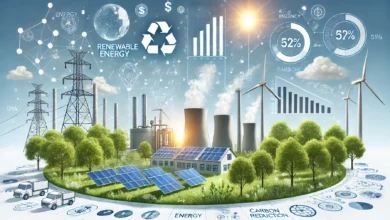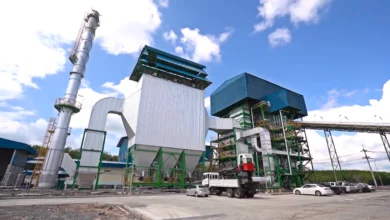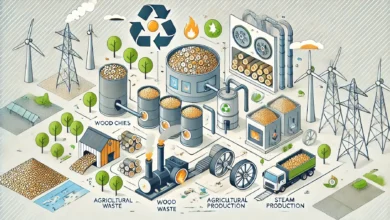Biomass Fuels | Types and Applications
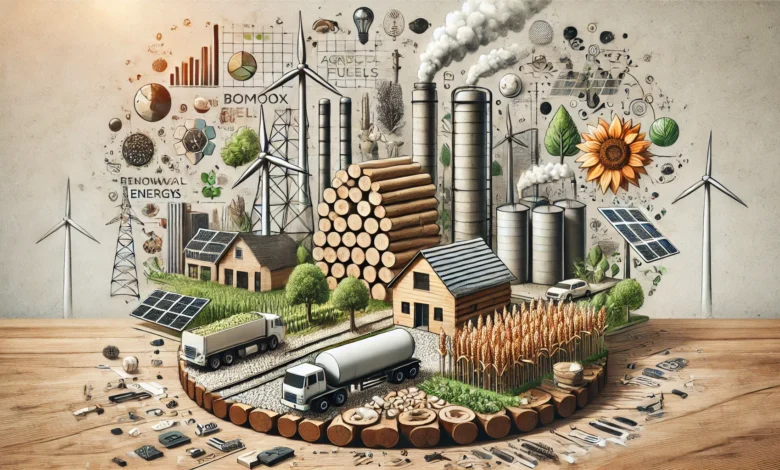
Contents
What Are Biomass Fuels?
Biomass fuels are organic materials derived from plants, animals, and other biological sources used to produce energy. They include wood, agricultural residues, and animal waste. Biomass is often referred to as biofuel, highlighting its ability to generate heat, electricity, and transportation fuels. Unlike fossil fuels, biomass is considered renewable energy due to its ability to regenerate naturally over time.
Biomass Meaning
The term biomass refers to any organic material that stores energy from the sun through photosynthesis. This stored energy can be released when the material is burned or chemically converted into fuel.
Is Biomass Renewable Energy?
Yes, biomass energy is a renewable source of energy because it can be replenished through natural processes, making it sustainable when sourced responsibly.
How Is Biomass Made?
Biomass is created from organic matter, including:
- Plant Materials: Crops, trees, and grass absorb solar energy, storing it as chemical energy.
- Animal Waste: Livestock manure can be collected and processed.
- Agricultural Residues: Leftover stalks, husks, and shells are reused.
- Industrial Byproducts: Waste wood, paper, and sawdust are examples.
These materials undergo processes such as combustion, gasification, and anaerobic digestion to produce heat, electricity, or liquid fuels.
Types of Biomass Fuels
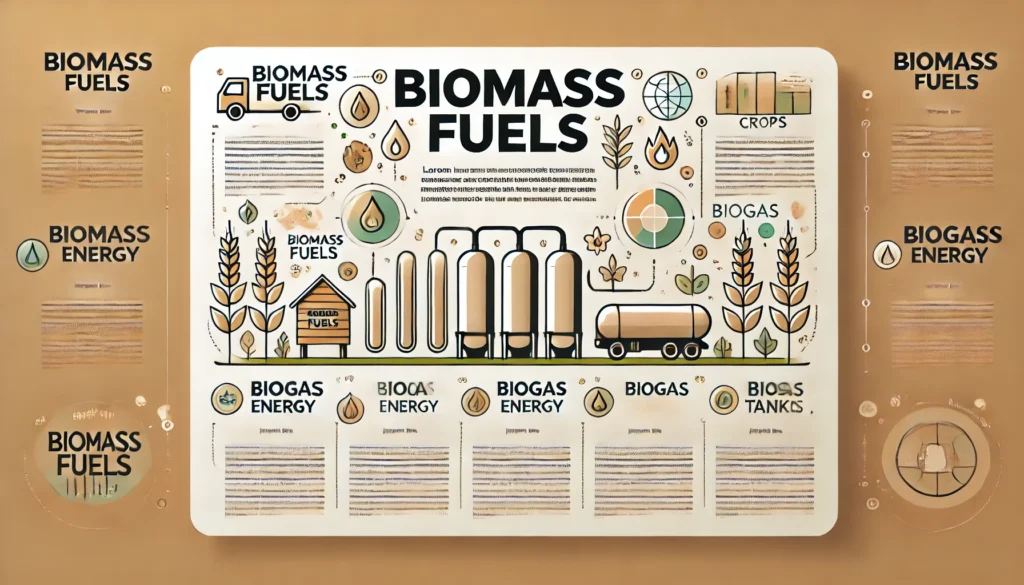
1. Wood and Agricultural Residues
- Examples: Firewood, sawdust, and crop residues.
- Applications: Used for heating, cooking, and generating electricity.
- Advantages: Abundant, affordable, and easy to process.
2. Animal Waste
- Examples: Manure and organic waste.
- Applications: Converted into biogas through anaerobic digestion.
- Advantages: Reduces waste and methane emissions while providing sustainable energy.
3. Solid Waste and Municipal Debris
- Examples: Paper, cardboard, and yard trimmings.
- Applications: Burned in biomass energy plants to generate electricity.
- Advantages: Diverts waste from landfills and reduces reliance on fossil fuels.
4. Energy Crops
- Examples: Switchgrass, willow, and sugarcane.
- Applications: Processed into bioethanol and biodiesel.
- Advantages: High energy output and dedicated energy supply.
Applications of Biomass Fuels
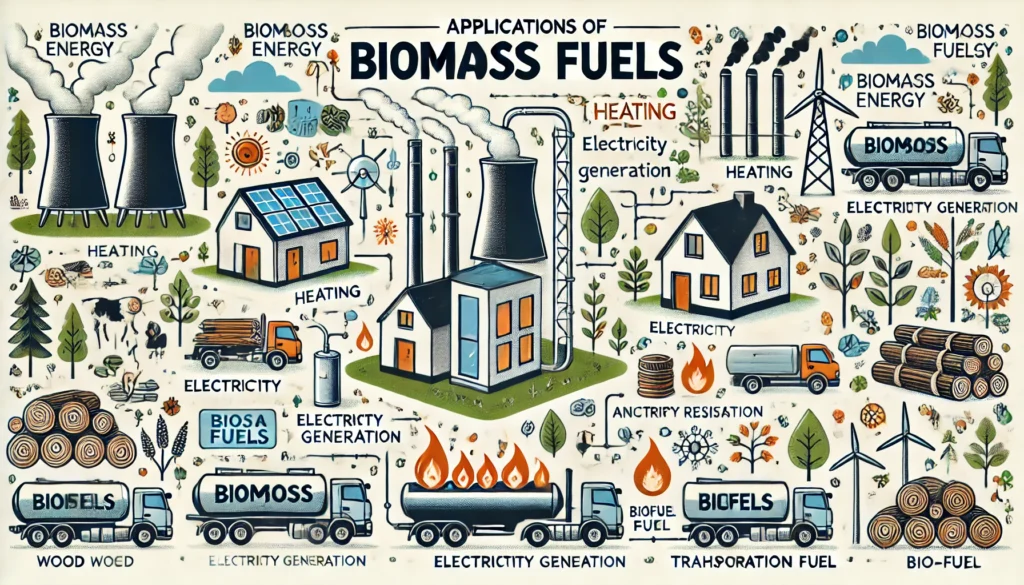
1. Heating and Cooking
Biomass fuels like wood pellets and chips are widely used for heating homes and cooking, especially in rural areas.
2. Electricity Generation
Biomass energy plants burn biomass fuel to generate steam, which drives turbines to produce electricity.
3. Transportation Fuels
Biofuels, such as ethanol and biodiesel, power vehicles and reduce greenhouse gas emissions.
4. Industrial Applications
Industries use biomass energy for heat and power, particularly in paper and food processing sectors.
Advantages of Biomass Fuels
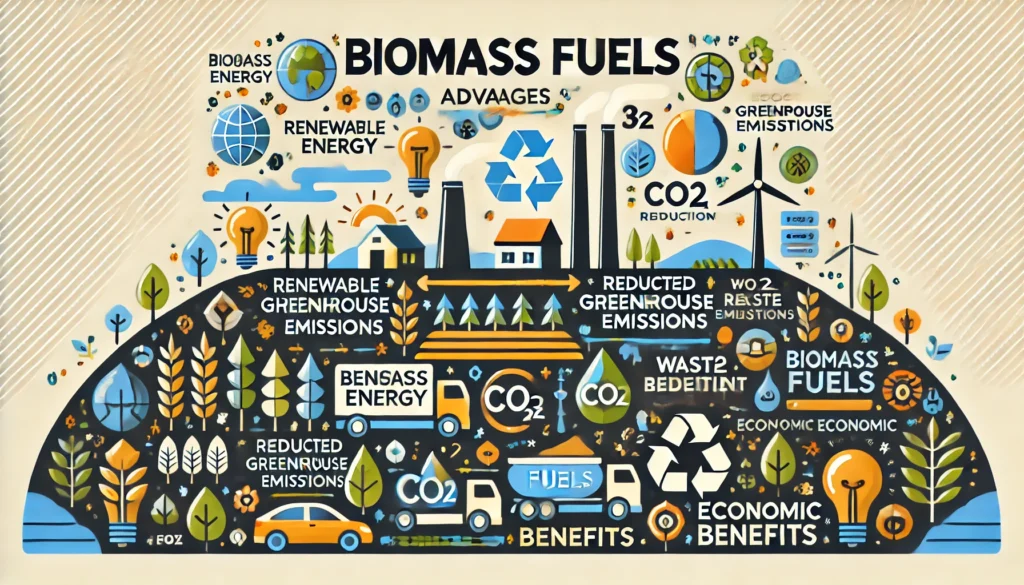
1. Renewable and Sustainable
Since biomass is derived from natural resources, it is continuously replenished, making it a renewable energy source.
2. Carbon Neutral
Biomass energy releases carbon dioxide during combustion, but this is offset by the carbon absorbed by plants during growth.
3. Waste Reduction
Organic waste is repurposed, reducing landfill volumes and methane emissions.
4. Energy Independence
Biomass fuels reduce reliance on imported fossil fuels, promoting energy security.
5. Economic Benefits
Investing in biomass energy plants creates jobs and stimulates local economies.
Is Biomass Energy Renewable or Nonrenewable?
Biomass energy is classified as renewable energy due to its natural regeneration cycle. However, sustainability depends on responsible sourcing and replenishment.
Examples of Biomass Fuels
- Wood Chips and Pellets: Used in heating systems and power plants.
- Biogas from Animal Waste: Powers homes and industries.
- Bioethanol and Biodiesel: Used in transportation.
- Algae: Processed into liquid biofuels.
Challenges and Future Outlook
While biomass energy offers many advantages, challenges such as land use, resource management, and emissions need to be addressed. Research in advanced low-emission biomass technologies is paving the way for more sustainable energy solutions.
Biomass fuels are versatile and sustainable energy sources with applications ranging from heating and electricity generation to transportation. As a renewable source of energy, they play a crucial role in the global transition toward sustainability. Understanding biomass advantages and its diverse applications helps pave the way for a greener future. Investing in biomass energy plants and advancing technologies ensures that biomass and biofuels remain viable solutions for clean energy.
